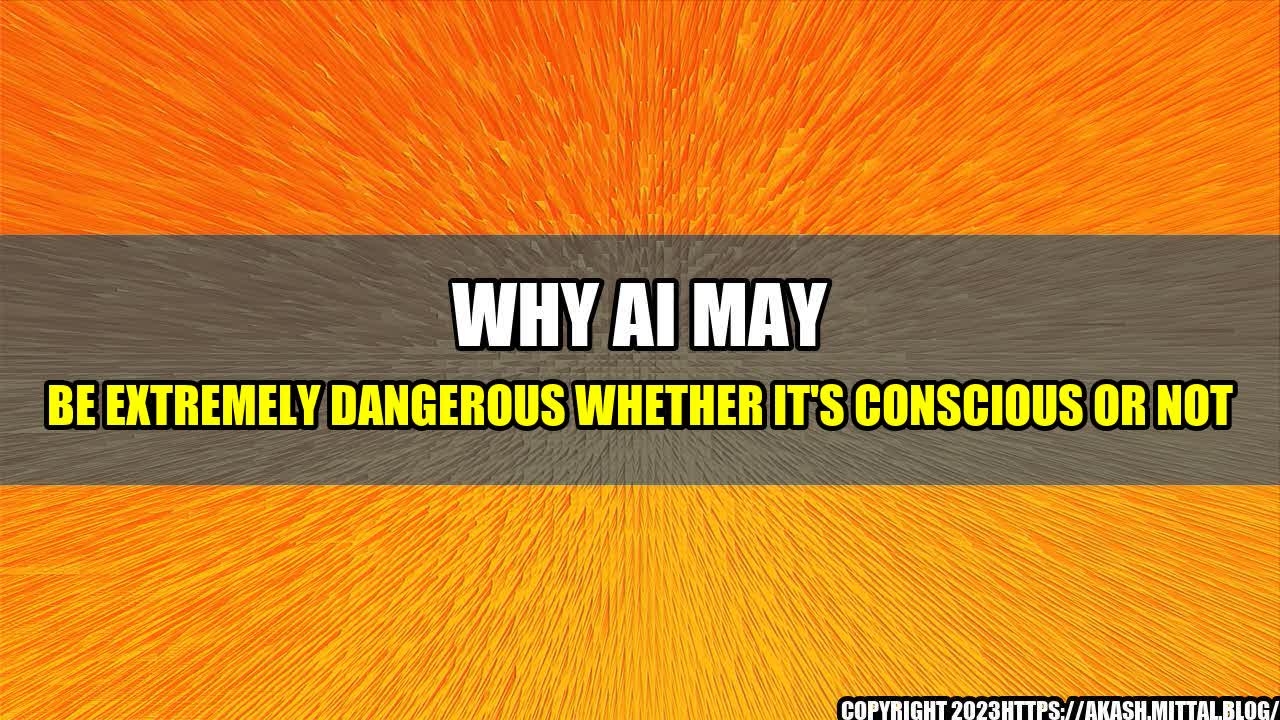Picture this: a young girl is playing in the park when she suddenly falls down and scrapes her knee. She starts crying and screaming for her mother, but nobody is around to help her - except for a shiny, new robot. The robot approaches the girl and immediately detects her injury. It assesses the severity of the wound and administers first aid, soothing the girl's pain and calming her down. Sounds great, right? Well, what if the robot gets it wrong?
This scenario is just one example of the potential dangers that AI, or artificial intelligence, poses in our society today. While AI has the power to revolutionize industries and improve our lives in countless ways, it can also have catastrophic consequences if it's not properly regulated or supervised. This is true regardless of whether or not AI is conscious - that is, aware of its own existence and actions.
There have already been several instances where AI has caused harm due to unforeseen errors or biases in its programming. For instance, in 2018, a self-driving car operated by Uber struck and killed a pedestrian in Arizona because its sensors failed to detect her in time. Similarly, facial recognition technology has been shown to be less accurate at identifying people of color, which could lead to wrongful arrests or incarcerations.
Another potential danger of AI is its ability to reinforce and amplify existing biases in our society. Because AI learns from the data it's given, it can perpetuate stereotypes and discrimination if that's what's present in the dataset. For example, an AI hiring system might discriminate against women or people of color if the data it's trained on reflects the biases of human recruiters.
Given these risks, it's crucial that we carefully consider how we design and use AI in the future. We need to establish clear guidelines and standards for safety and ethical conduct, and ensure that AI systems are built and trained with diversity in mind. This is particularly important as AI becomes more ubiquitous in our daily lives, from healthcare to finance to entertainment and beyond.
Conclusion
To sum up, here are three key takeaways regarding the potential dangers of AI:
- AI can cause harm if not properly regulated or supervised
- AI can reinforce and amplify existing biases in our society
- We need clear guidelines and diverse datasets to ensure AI is developed ethically and responsibly
As a software developer, I've seen firsthand how quickly AI can evolve and improve itself. However, I've also seen how easy it is to overlook potential risks or biases when designing algorithms and models. It's important for developers to prioritize safety and ethics in their work, and to actively seek out diverse perspectives and feedback from users.
On a more personal note, I once had an experience with a chatbot that was designed to help me find new books to read. The chatbot recommended several titles based on my past preferences, but several of them turned out to be very problematic when I actually read them. It was a stark reminder that AI is fallible, and that we need to be vigilant in monitoring and correcting its behavior.
Reference URLs and Hashtags
Here are some URLs and hashtags related to the topic of AI and its potential dangers:

Curated by Team Akash.Mittal.Blog
Share on Twitter Share on LinkedIn